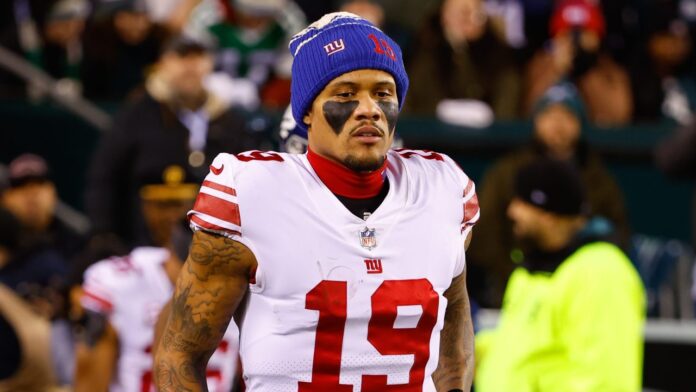Fallout from sports agents’ recruitment of NFL wide receiver Kenny Golladay in 2019 should trigger sanctions, a federal magistrate judge wrote last Friday.
Golladay, 30, hasn’t played in the NFL since he caught six passes in 12 games for the New York Giants in 2022. But a few years earlier, Golladay was one of the league’s elite players. He led the NFL in touchdown receptions in 2019 with 11, while catching 65 passes for 1,190 yards for the Detroit Lions.
It was that year when Golladay switched agencies from Clarity Sports International to CAA.
The agency swap has sparked five years—and counting—of federal litigation, with a trial scheduled for July 15, 2024, in Harrisburg, Pa. U.S. Magistrate Judge Martin Carlson wrote “the degree of enmity and antipathy” in Clarity Sports v. CAA “is aptly illustrated by the fact that this dispute regarding Golladay’s 2019 representation contract has now outlived Golladay’s actual NFL career.”
Sportico has previously detailed the litigation’s purported facts and myriad accusations. Agent Todd France, who worked for CAA at the time, allegedly organized a memorabilia signing event for Golladay while Golladay was still a client of Clarity principal Jason Bernstein. Three days later, Golladay fired Bernstein so he could sign with France. Clarity and Bernstein then sued CAA and businesses connected to the signing event for tortiously interfering with the Clarity-Golladay contractual relationship. Bernstein has argued he lost more than $2 million in commissions that would have been earned on Golladay’s contracts and endorsement deals.
In the litigation’s latest turn, Clarity motioned for the court to impose discovery sanctions against the defendants. When a party in a litigation refuses to comply with subpoenas and other discovery orders, such as by destroying or concealing evidence or providing untruthful or misleading answers, a judge can sanction that party. Possible penalties range from entry of default judgment, meaning the case is decided against the sanctioned party, to forcing the sanctioned party to pay the other side’s costs and attorney fees.
Clarity insists CAA engaged in unreasonable delays in acknowledging and sharing expense reports and travel documents for France. As Clarity tells it, CAA initially didn’t acknowledge the existence of documents connecting France to the memorabilia signing. It then turned over redacted versions which “concealed material information.” The redacted text, Carlson explained, “contained undeniably relevant information” including “specific references to Golladay as a recruit or prospective client.” That description goes to the central theory of Clarity’s legal argument: CAA “endeavored to tortiously interfere with Clarity’s contractual relationship with Golladay.” CAA, for its part, disputes Clarity’s allegations and insists it adhered to the law.
Clarity also points to “troubling inconsistencies” in testimony and evidence related to how CAA employees presented Golladay with a contract. One account indicated the contract was emailed from CAA’s offices, another had France sending it from his cell phone. The overarching purpose of pretrial discovery is to ensure that litigants, as well as the judge, are accurately informed of relevant facts. Otherwise, the case could be decided on wrong facts or incomplete narratives.
Carlson described “discovery shortcomings” in Clarity Sports v. CAA as “profoundly grave and troubling” since they suggest the parties valued “expedience over accuracy” and the pursuit of “tactical advantage over transparency.” He noted this is not a case where the concealed evidence may have been privileged. Instead, the parties’ conduct seemed more in line with “gamesmanship” than “legitimate advocacy.”
While Clarity wanted Carlson to recommend a default judgment, the judge concluded lesser penalties of the defendants paying costs and fees would be more appropriate. Carlson noted the law prefers cases be decided on the merits, which will happen if Clarity Sports v. CAA goes to a jury trial, as scheduled, in four months. Carlson stressed the facts in this case “are hotly contested” and “discerning the truth in this dispute will very likely entail an assessment of witness credibility.”
Although the parties could reach a settlement at any time, a trial would–as Carlson wrote–provide a glimpse into how aggressively sports agencies jockey for marquee clients. It would also illuminate “a world where players are frequently viewed more as commodities than individuals.”
Carlson’s order is a recommendation to U.S. District Court Judge Yvette Kane, who has presided over the litigation. The parties have a couple of weeks to file written objections.
(In the fifth paragraph of an earlier version, agent Todd France’s first name was incorrect.)

